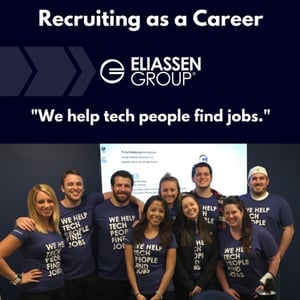IT consultants and hiring managers are all too familiar with this “dance.” (And I am not talking about the “Wiggle,” the “Whip,” or the “Nae Nae.”
The dance I’m referencing is the one in which you both meet, but do not move to music. Instead, your hop consists of a series of interview questions in which the hiring manager gauges whether the IT consultant would be a good fit for the existing opening on his or her team.
And the preparation for this engagement is always the same: As the IT consultant, you decide the night before what you are going to wear; scour your resume to become reacquainted with its contents if you have not already done so; and continue to study the structure of the company you want to join, so you will be prepared for any question that comes your way in the course of the interview. And as the hiring manager, you peruse your candidate’s resume yet again; go over the notes you took during the initial phone interview; and make sure the standard questions you always ask in similar interviews will be applicable in this case as well.
At the end of that “work,’’ you relax, perhaps watch a little TV, and go to bed.
AND THEN DAYLIGHT COMES, AND IT’S INTERVIEW DAY!
And what transpires that’s new, that will truly separate the credentials of this candidate from the others?
Nothing, because you have both gone through the regular exercise of preparing for the interview and answering the same old questions, probably with responses that have been heard time and time again.
So how can the IT consultant differentiate him or herself from the competition in order to land the role?
And how can the hiring manager, posing the questions, learn more about the candidate(s) and truly come away with information that will serve as an aid in the hiring process?
Kelsie Davis, in this post at ere.net, suggests hiring managers could get candidates out of this “performance mode” if they asked the following questions:
What keyboard shortcuts do you use?
- What would your current manager say you should do more of, less of or stop doing altogether?
- What was your very first job?
- How do you feel about the oxford comma, or open-source vs. proprietary software, or whether to capitalize or expense the implementation of SaaS?
Her point with asking those questions is that any query that solicits passion from the candidate is a more genuine response than an answer that can be scripted during the preparatory process leading up to the day of the interview. And it makes sense when you think about it.
As a hiring manager, why would you want to fall victim to the same old thing? And why wouldn’t you want to be able to get a read on what it is that would drive your candidate’s passion? After all, doesn’t passion equate to potentially being innovative at work if our job(s) help fuel our quest to be different and better than those around us?
For the IT consultants reading this, have you ever given any serious thought to how you would respond to such questions?
You are mistaken if you believe your answers would not be considered in the decision-making process used to determine whether you would get selected for the role.
My advice in case you are ever asked those, or other similar-type questions in an interview?
- Speak freely about the areas that interest you.
- Go beyond the obvious responses.
- Share a personal story about yourself that you feel would resonate with your interviewer and be looked upon favorably within that enterprise’s culture.
- And always, always, remember: Your next opportunity is never far from your grasp, because your skills are always going to be in demand.
As an IT consultant have you had an interview like this? What did you think about those questions? Were they appropriate?
As an IT hiring manager, do you ask questions like this in order to garner more information from your candidates?



